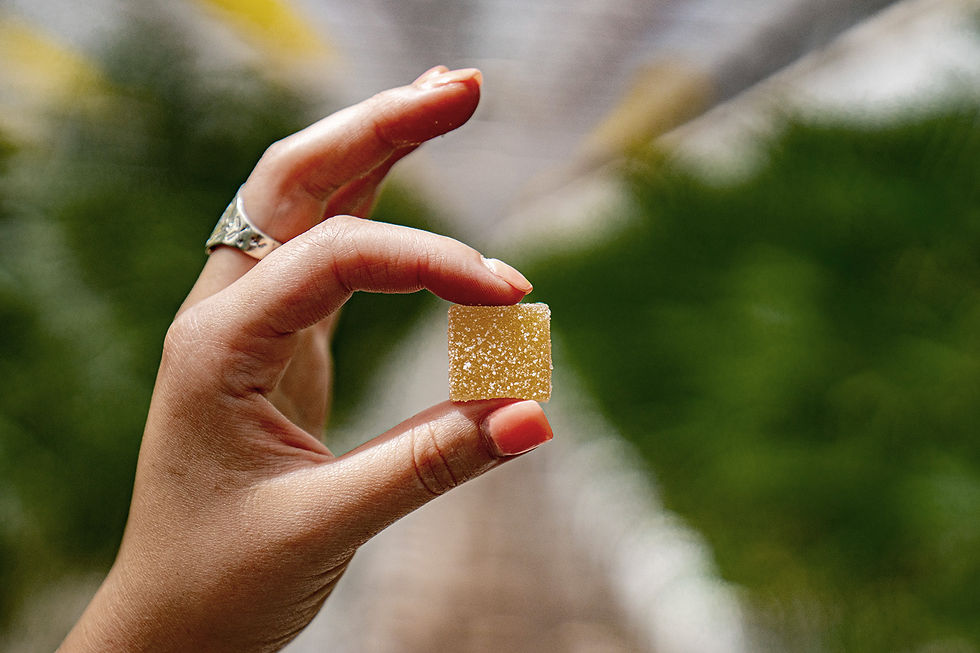The Difference Between Hemp Oil and Hemp Softgels
- Oct 4, 2020
- 3 min read

What doesn’t have CBD in it these days? From lotions to cocktails, air diffusers, soap, gummies, water, and the list goes on. Since the explosion of CBD products over the past couple of years, it can be dizzying to figure out what’s best for you and your lifestyle. To make things worse, it can be hard to find credible information on the differences between products, their overall effectiveness, the way your body interacts with them, and when to actually use them. While all of this information could easily fill a book, here we distill it down to the most important information so that you can make informed decisions.
Today we’ll be talking about the differences between some of the most commonly used CBD products, tinctures, capsules, and softgels.
Hemp CBD Capsules and Softgels
Capsules and softgels are broadly used terms that are used to define an oral supplement and are typically composed of gelatin or cellulose. They are great because each one is already accurately measured for a specific dosage and consistent effect. The inner part of a CBD capsule, or softgel, is filled with broad-spectrum hemp CBD extract rich with naturally occurring phytonutrients (like ours) or CBD isolate, along with a variety of other minerals and supplements, depending on the product.
Hemp CBD Oil
Hemp CBD oil is usually found in tincture products that are ingested using a dropper. Similar to capsules, CBD oils are composed of broad-spectrum hemp CBD extract (like ours) or CBD isolate with additional minerals and supplements. However, these ingredients have to be mixed with a carrier oil. Carrier oils are oils made from plants that are used to dilute CBD for ingestion. The most common carrier oils include hemp seed, olive (like ours), coconut, sunflower, and vegetable oils.
Choosing Capsules/Softgels or Oil
There are two major considerations to keep in mind when choosing between capsules/softgels or oil: bioavailability and dosage.
Bioavailability
Unfortunately, not all of the CBD you ingest in either format gets fully absorbed into your system. Humans, or most living things for that matter, are much better at absorbing water-soluble molecules (things that dissolve in water) than oils. Since CBD is typically contained within oil, it can generally have a bioavailability between 6-19% while the majority of it passes through your system. Tinctures are typically thought to have better bioavailability than capsules/softgels because they can be ingested sublingually (under the tongue), which can increase that bioavailability up to 20-30%. So capsules and softgels are generally less potent since they’re swallowed, versus a tincture which is ingested sublingually.
However, new softgel nanoemulsion technology that splits CBD oil droplets into super tiny droplets (like our proprietary CBD Softgels) has been shown to significantly increase bioavailability. Nano is just another fancy science word for super small, and emulsion is the process of mixing droplets of a non-water-soluble liquid (CBD) with a water-soluble liquid. Since we are much better at absorbing small particles, nanoemulsion breaks CBD down into easier to absorb molecules and further enhances its bioavailability by combining it with a more digestible soluble layer.
Dosage
Depending on what you’re using CBD for, you may want to take a consistent dosage. Whether you use it for sleep, chronic pain, or stress, you might want to achieve a reliable effect every time so you know what to expect. Capsules or softgels are well suited for this scenario as each one is premeasured and the same across all servings. However, there are those that may want to vary their CBD consumption for a variety of reasons, each requiring their own dosage. CBD tinctures are better suited for flexible use cases as you have the freedom to choose what dosage you’re looking for. However, tinctures are typically more difficult to measure with each serving.
Boiling it Down
At the end of the day, the choice between CBD oil or capsules/softgels comes down to personal preference. While there is a slight difference in bioavailability and dosage flexibility, you can achieve the same results using both CBD formats. The most important factor is what fits in best with your own personal routine and lifestyle. What do you use CBD for? When and how often do you use it? If you’re unsure of any of these questions, we suggest you read our other journal entries like, ‘The Ultimate Guide: Find Your Perfect Product’. Finding the optimal products for your unique needs can be a journey, but we’re here to partner with you on that journey. Please feel free to connect with us on our Connect page with any questions. We would love to hear from you!



Comments